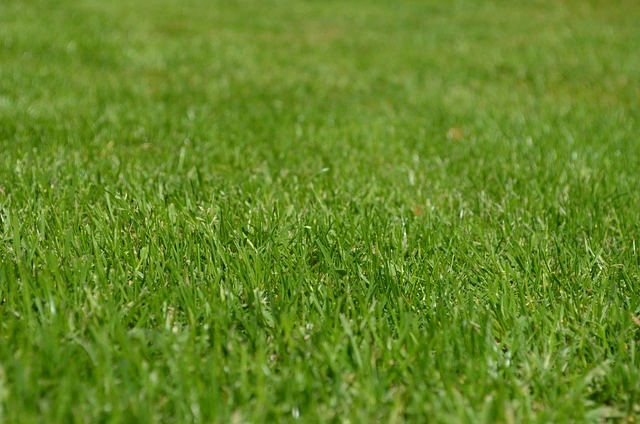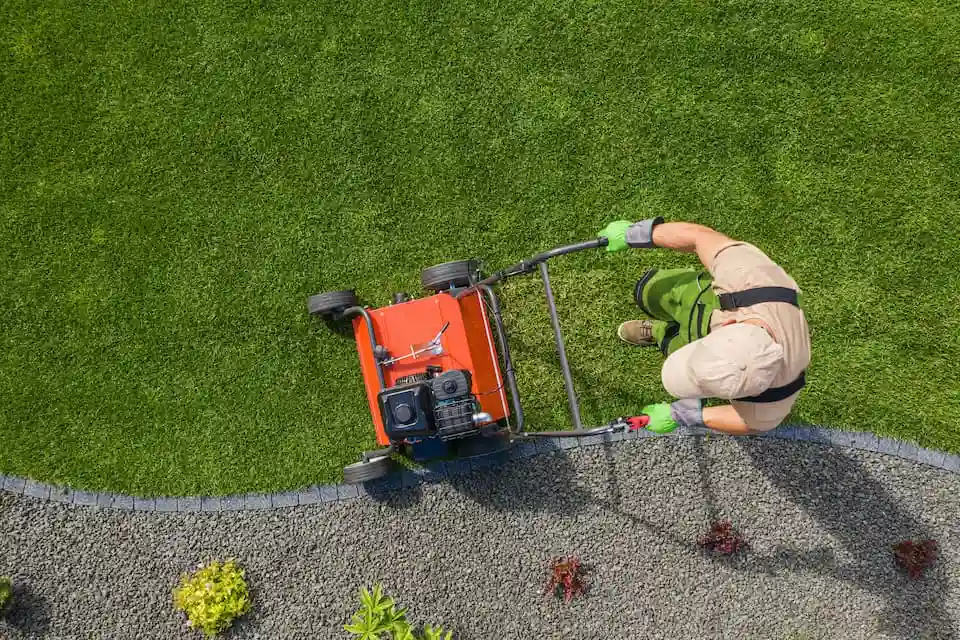If you’re a new homeowner or a novice gardener in the Tar Heel State, you’ve come to the right place for beginner lawn car tips. Maintaining a lush, green lawn in North Carolina can be a rewarding endeavor, but it does come with its unique challenges and considerations due to the state’s diverse climate.
Whether you’re in Raleigh, Durham, Chapel Hill, or any other corner of this picturesque state, our Wake County lawn care experts from FortSmith Landscaping are offering beginner tips that will help you achieve and maintain a healthy, vibrant lawn.

Understanding Climate and Grass Types for Lawn Care in NC
North Carolina’s climate is as diverse as its landscapes, offering everything from coastal plains to rolling hills and mountains. This geographical diversity leads to a wide range of climate conditions across the state. To successfully care for your lawn in North Carolina, it’s crucial to understand these climate variations and their impact on your green space.
Coastal Plain
The Coastal Plain experiences hot and humid summers, where average temperatures often soar into the mid-80s to 90s Fahrenheit. Winters, on the other hand, are relatively milder, with temperatures seldom dropping below freezing. When caring for your lawn in the Coastal Plain, you must be mindful of the extended periods of heat and humidity during the summer months.
Frequent watering may be necessary to prevent your grass from drying out. Additionally, keeping an eye on potential fungal diseases due to the moisture levels is essential. Regular mowing, appropriate fertilization, and aeration practices are key components of maintaining a thriving lawn in this climate.
Piedmont
Summers in the Piedmont are characterized by warm and humid conditions, with temperatures frequently reaching the mid-80s to low 90s Fahrenheit. Winters tend to be cooler compared to the Coastal Plain, with occasional drops in temperature below freezing. In the Piedmont, lawn care demands adaptability to both hot and dry spells during the summer and the potential for colder winters. Proper irrigation practices are crucial to keep your grass healthy, especially during dry periods.
Mountains
Summers in the Mountains are generally mild, with daytime temperatures typically ranging from the 70s to low 80s Fahrenheit. Winters are notably colder, often accompanied by regular snowfall, and temperatures frequently dip below freezing. Caring for your lawn in the Mountain region involves recognizing the unique challenges posed by cooler temperatures and the potential for snow accumulation during the winter months.

Basic Lawn Maintenance Tips
Once you’ve gained a solid understanding of North Carolina’s climate and chosen the right grass type for your region, it’s time to dive into the essential aspects of basic lawn maintenance with these lawn care tips. These foundational practices will help you establish and maintain a healthy, lush lawn that enhances the beauty of your North Carolina home.
#1 – Mow Your Lawn
Lawn mowing is a fundamental aspect of lawn care in North Carolina. The key to successful mowing lies in understanding your grass type and the climate of your specific region.
For Coastal Plains residents, warm-season grass like Bermuda grass and Zoysia are common, and they thrive in the heat. Maintain a mowing height of 1.5 to 2.5 inches for these grasses, and mow regularly during the growing season. In the Piedmont and Mountain regions, where cool-season grass like Tall Fescue is prevalent, adjust your mowing height to 2.5 to 3.5 inches and mow consistently to maintain an even, healthy lawn.
Remember the one-third rule: never remove more than one-third of the height of the grass blade in a single mowing to avoid stressing the grass.
#2 – Water Your Lawn
Watering your lawn effectively is crucial to its overall health and should be a part of your regular lawn care routine. In the Coastal Plains, where hot and humid summers are the norm, it’s essential to provide adequate moisture. Water deeply and infrequently to encourage deep roots to grow, typically aiming for 1 to 1.5 inches of water per week.
In the Piedmont and Mountain regions, where summers can be warmer and drier, maintain a consistent watering schedule to ensure your cool-season grasses stay hydrated. Water your lawn early in the morning or late in the evening to minimize water loss due to evaporation. Always adjust your watering routine based on local climate conditions and rainfall patterns.
#3 – Test Your Soil
Understanding your soil is the foundation of successful lawn care. Conduct a soil test to determine your soil’s pH, nutrient levels, and drainage capacity. This information will guide your fertilizer choices and help you adjust your soil’s pH if needed.
In the Coastal Plains, where soil can be sandy, testing becomes even more critical to ensure your lawn gets the nutrients it requires. Regular soil testing ensures you provide your grass with the right nutrients at the right time, promoting vigorous growth and resilience.
#4 – Fertilize Your Lawn
Lawn fertilization is essential for providing your lawn with the necessary nutrients it needs to thrive. Choose a fertilizer formula based on your soil test results and grass type.
In the Coastal Plains, where warm-season grasses dominate, opt for a fertilizer with a balanced N-P-K ratio, like 16-4-8, during the growing season. In the Piedmont and Mountain regions, select a formula that suits your cool-season grasses, such as 20-4-10.
Apply fertilizers following the recommended timing and avoid over-fertilizing to prevent nutrient runoff and damage to the grass.
#5 – Weed Your Lawn
Weeding is an ongoing battle in lawn care. Identify common weeds in your area, such as crabgrass, dandelions, and clover, and implement a weed control strategy.
Consider natural methods like hand-pulling for small infestations or applying pre-emergent herbicides to prevent weed seeds from germinating. For larger weed problems, post-emergent herbicides can help, but always follow product labels and consider environmental impact. Maintaining a healthy, well-fertilized lawn will also aid in preventing weed invasion.

#6 – Aerate and Dethatch Your Lawn
Aeration and dethatching are essential practices to improve soil health and grass growth. In the Coastal Plains, where soil compaction can be an issue due to heavy rainfall, aeration helps ensure proper water and nutrient penetration. In the Piedmont and Mountain regions, aeration aids in loosening soil and promoting root development.
Dethatching, on the other hand, removes the layer of dead grass and organic matter that can inhibit water and nutrient absorption. These practices are especially beneficial when performed at the right times, so schedule aeration and dethatching based on your grass type and climate zone.
Choosing FortSmith Landscaping Professional Lawn Care Services
FortSmith Landscaping offers professional lawn care services that can make a significant difference in the health and appearance of your North Carolina lawn. Our team of experienced experts understands the unique challenges posed by the state’s diverse climate and landscape, and we are dedicated to providing tailored solutions and lawn care tips to meet your lawn care needs.
Some of the benefits of choosing our lawn care services in Raleigh include:
Our team understands the nuances of the state’s soil composition, enabling us to recommend and implement the right treatments for your soil type.
FortSmith Landscaping offers a complete range of lawn care services, including mowing, fertilization, weed control, aeration, and more.
We take the guesswork out of lawn care by developing a tailored maintenance plan that ensures your lawn receives the right treatments at the right times.
Our professionals are skilled at identifying and addressing common lawn pests and weeds, preventing them from damaging your grass.
If your lawn requires more extensive renovation or if you’re starting from scratch, we offer lawn installation services using the appropriate grass varieties for your region.
Our consistent care plans help your lawn thrive year-round, from season to season.
FortSmith Landscaping uses state-of-the-art equipment and proven techniques to deliver high-quality lawn care services.
We work closely with you to understand your lawn care goals, preferences, and budget, providing personalized solutions that meet your needs.
By entrusting your lawn care to professionals, you can save valuable time and effort, allowing you to enjoy your outdoor space without the hassle of maintenance.
Our commitment to excellence means that we stand behind the quality of our work. We strive to achieve results that exceed your expectations, leaving you with a lawn you can be proud of.
Contact Our Raleigh Lawn Care Experts Today
At FortSmith Landscaping, we take pride in transforming ordinary lawns into vibrant, healthy landscapes. Our professional Raleigh landscaping services are designed to simplify your lawn care maintenance and ensure that your North Carolina home’s outdoor space remains beautiful and inviting.
Let us help you achieve a beautiful lawn with our lawn care tips, expertise, and dedication to excellence. Contact us today by calling (919) 228-8495 or filling out the form below to get started.
